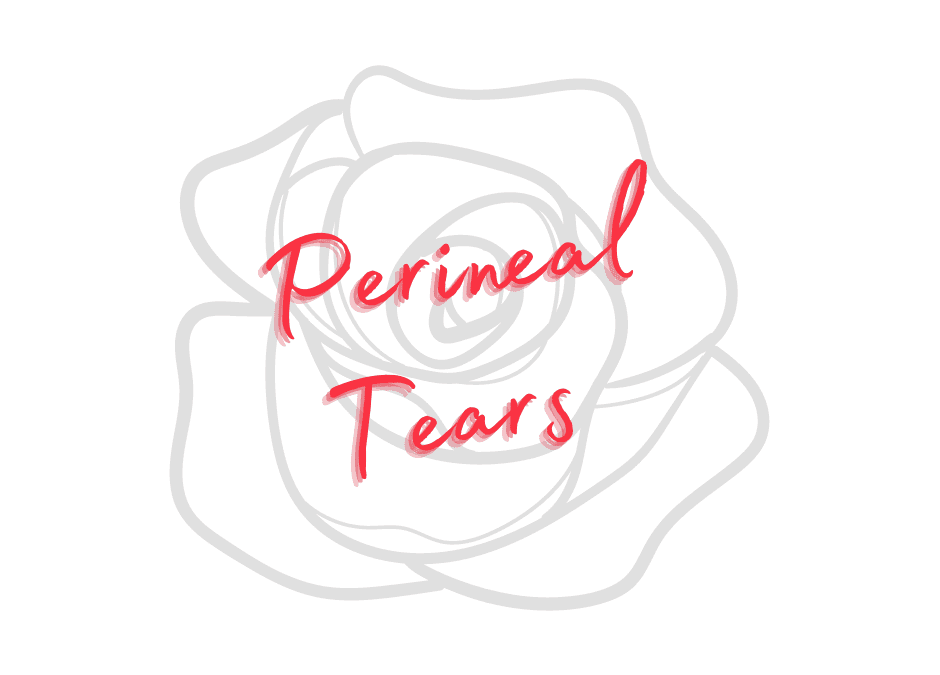Tearing of the perineum during childbirth – The facts and what you can do to help with prevention and recovery.
Tearing is very common with vaginal births
It sounds obvious but…the skin and muscles around the entrance to the vagina have never stretched so much before. Even with the hormones of pregnancy and birth helping relax down there- 80% of birthing people will likely have a tear.
Tearing is graded from 1st degree to 4th degree
- 1st degree tear involves the skin of the labia, perinuem, and vagina only.
- 2nd degree tear involves the skin as well as the underlying superficial muscles around the vagina.
- 3rd degree tear extends from the skin of the vagina and surrounding muscles and starts to involve the anal sphincter muscles. There are different levels of third degree tear. 3A- is less severe, 3B involves more of the sphincters, and 3C even more.
- 4th degree tear involves a tear to the skin and all the muscles from the vagina, through the anal sphincter muscles, to the anal canal.
Third and fourth degree tears are also called OASI (Obstetric Anal Sphincter Injuries)
If you have a 3rd or 4th degree tear during childbirth, it will be surgically repaired to ensure the best recovery long term. This might mean an anesthetic and some time away from the baby immediately after the birth. After these kinds of tears you can expect recovery to take a bit longer and it’s essential to see a pelvic physiotherapist to help with your rehabilitation.
The above information is not shared to scare you but to empower you with some awareness of the injuries that can happen.
Podcast from a midwife, on perineal tearing and ways to help with prevention. https://www.themiddeesociety.com.au/podcast-1/episode/264377b1/will-i-tear-when-giving-birth-the-perineum-and-how-to-prevent-tearing-during-birth-with-midwife-mon
Podcast on 3rd degree tears- OASI (Obstetric Anal Sphincter Injuries) https://open.spotify.com/episode/5wBdWz5Bhvbq6pf1Y4NInI
Before birth you can help prepare, and reduce the risk of injury, by:
Seeing your pelvic physiotherapist at any time in your pregnancy, to learn how to relax your pelvic floor muscles effectively, and how to push during labour.
They can help you:
- Learn about effective perineum massage – starting at around 34 weeks. Research shows this can help reduce the risk of more severe tearing
- Learn about labour positions, to help with pelvic floor relaxation and lengthening.
During the birth:
Your midwife may use hot compresses on the perineum when the baby is crowning, and hands on techniques to control the delivery of the head. This can help to further reduce the risk of tearing.
If you have a tear of any kind:
Come in and see us at Pelvic Health Physiotherapy for a thorough assessment anytime from 6 weeks after your birth. We can submit an ACC maternal birth injury claim for you if you don’t have one already! (Subsidised treatment yahoo!) If you have any concerns you’re welcome to come in sooner than that.
We will:
- Assess your pelvic floor muscles and give you a personalised rehab programme
- Assess for abdominal diastasis (a tummy gap in the midline) and help with abdominal strengthening and core muscle recovery
- Check you are doing the pelvic floor exercises correctly
- Give you guidance on when you could increase weight bearing activity and exercise
- Provide you with some reassurance on healing and confidence to return to sexual function as you wish to
- Give you stretches and strengthing exercises to get your body moving again, and ease any postural niggles that may result from caring for your baby
- Cover any other concerns you might have e.g. urgency to get to the toilet, leakage of urine, heaviness and bulging sensations
Who qualifies for ACC funding?
If you had a baby on or after the 1st October 2022, and you sustain any sort of tear, you will get a contribution from ACC towards the cost of your treatment. We can sort all that out for you at your appointment – you don’t need a referral from your doctor or midwife.
Please call our friendly reception team on 04 802 4225 to book in.
For more information on our postnatal check – our WOF check – click here
For more information in ACC funding – click here

